November 27, 2025 | 17:43 GMT +7
November 27, 2025 | 17:43 GMT +7
Hotline: 0913.378.918
November 27, 2025 | 17:43 GMT +7
Hotline: 0913.378.918
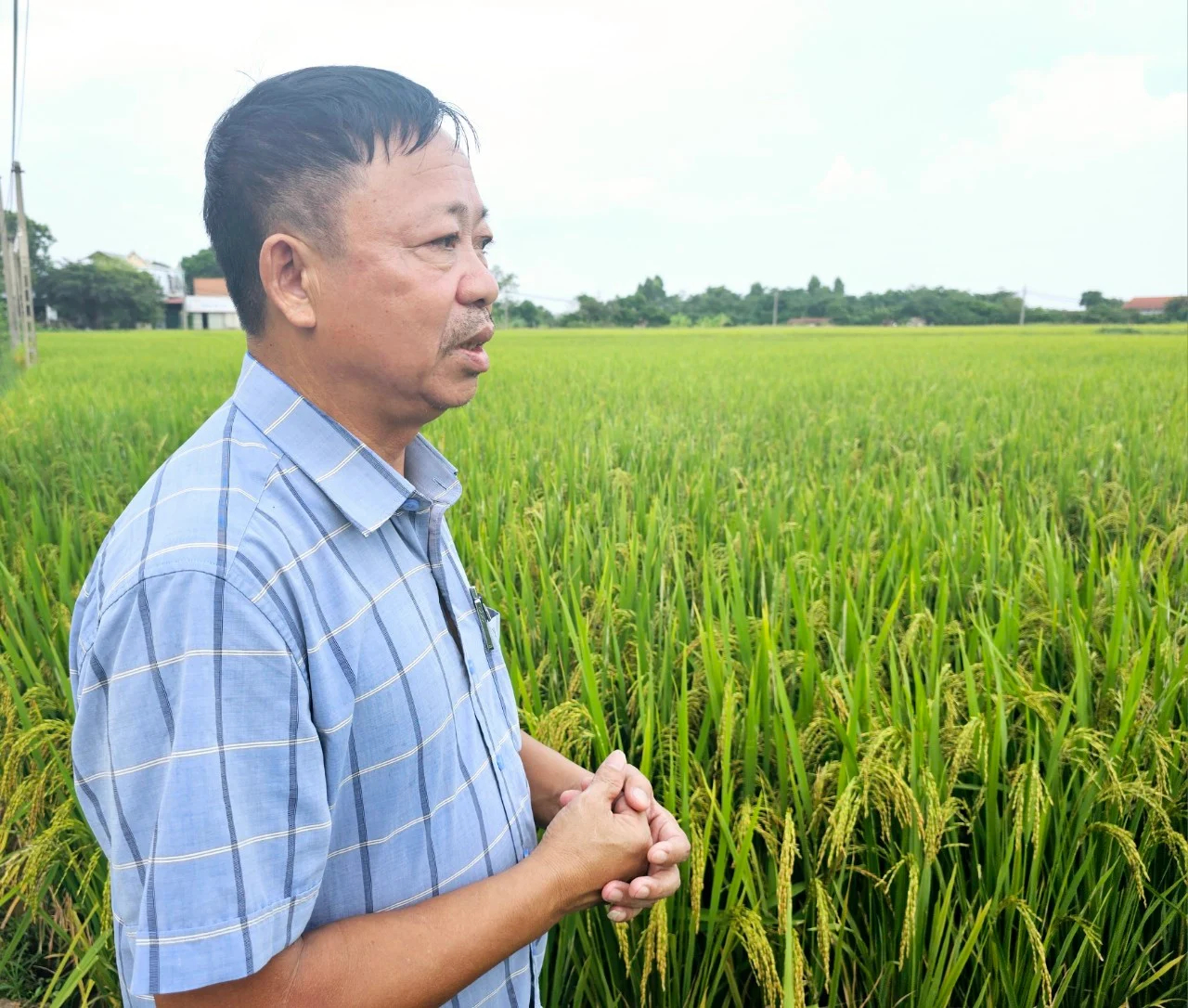
Mr. Dang Van Tac, Director of Tan Phong Agricultural Service Cooperative, talked about the difficult process of mobilizing people to participate in organic rice production. Photo: Hoang Anh.
Tan Phong is a key rice area of Binh Xuyen district, Vinh Phuc province. The total cultivated area each year is over 500 ha, of which the spring crop is more than 300 ha and the summer crop is more than 200 ha. Mr. Dang Van Tac, Director of Tan Phong Agricultural Service Cooperative shared: Many years ago, Binh Xuyen district had to cede a lot of rice land for industrial development. In the remaining rice areas like Tan Phong, people cultivate two crops a year but the crops are still fragmented and small.
The problem of how to mechanize, build a chain of links, produce organic agriculture, circular agriculture or at least mobilize people to participate in agricultural cooperatives is not a simple matter. There are seasons where people grow dozens of different varieties in one field. Each family produces in its own style. Introducing mechanization is difficult, pests and diseases are everywhere. During harvest time, production houses are not in sync, the selling price is disorganized.
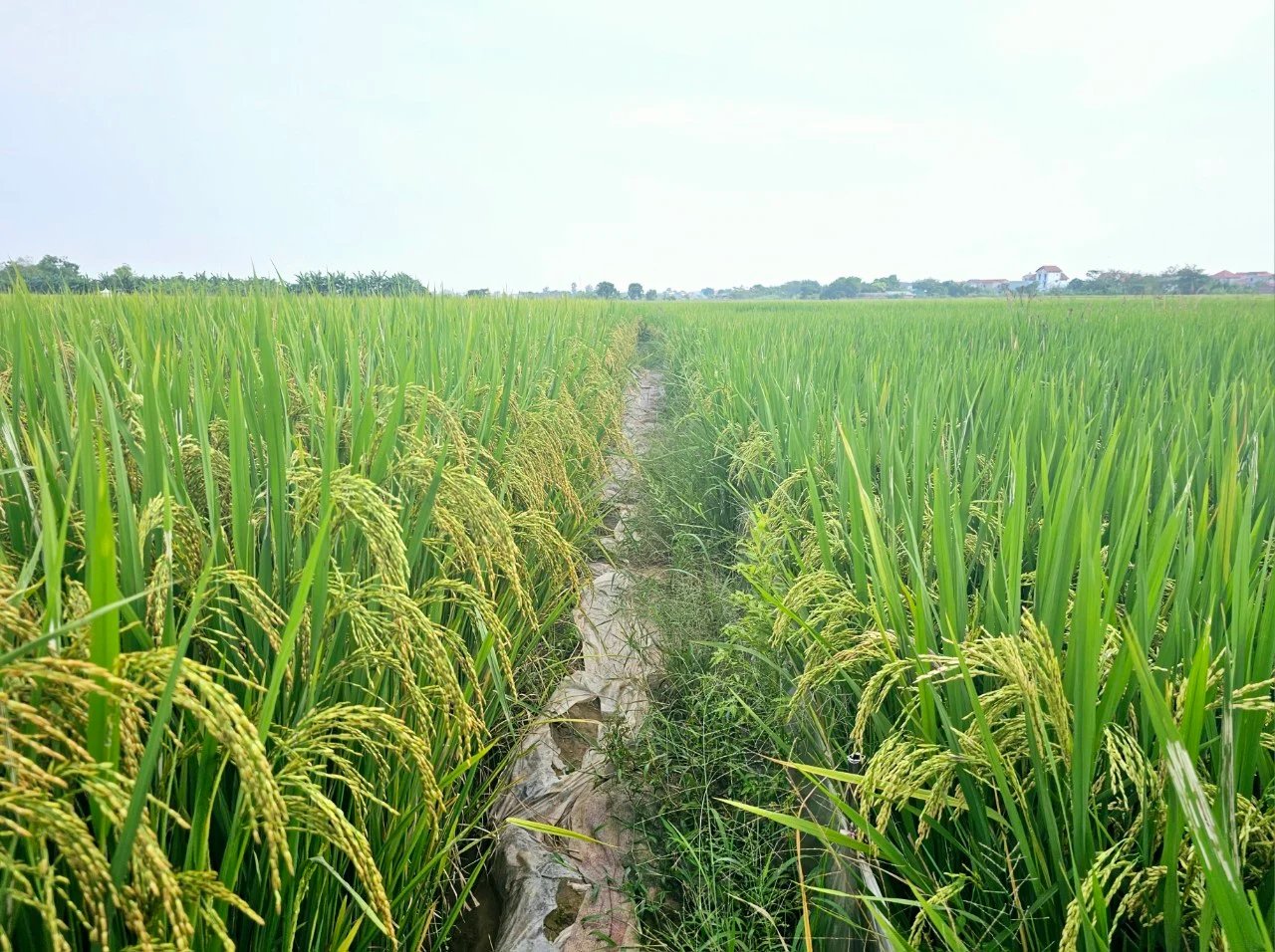
DT 39 rice cultivated using organic processes (left) outperforms traditionally cultivated rice (right). Photo: Hoang Anh.
In the years before 2020, the agricultural sector of Vinh Phuc province as well as the local government had many projects to build chain links in Tan Phong rice growing area. They will build chainlink in an organic direction, but people's psychology is afraid of change, so it failed. Old-fashioned farming practices, overuse of chemical fertilizers, and toxic pesticides are deeply rooted, coupled with the fact that fields are fragmented. A household owns a few acres only, so it is not worth anything, and the people are not uniting.
“The cooperative went to each meeting after meeting to persuade households to plant new varieties, following organic processes, but everyone shook their heads. People say that if we change, growing rice won't make us rich, so why bother with this and that process? Even before 2018, almost every crop was lost, due to leaf blight and stem borers, but when people were told to change, they didn't listen", explained the Director of Tan Phong Agricultural Service Cooperative.
That is why the National Agricultural Extension Center coordinated with the Department of Agriculture and Rural Development of Vinh Phuc province and Que Lam Group deployed the building of a cooperative model linking organic rice production along the value chain in several northern provinces. At first, Tan Phong people were not very interested. Although it is a pilot model in Vinh Phuc, the campaign has only had a few households participating, with an area of less than 5 acres. It was not until the first crop was successful, and the DT39 rice variety grown using organic processes had different results compared to traditional farming, that people thought again.
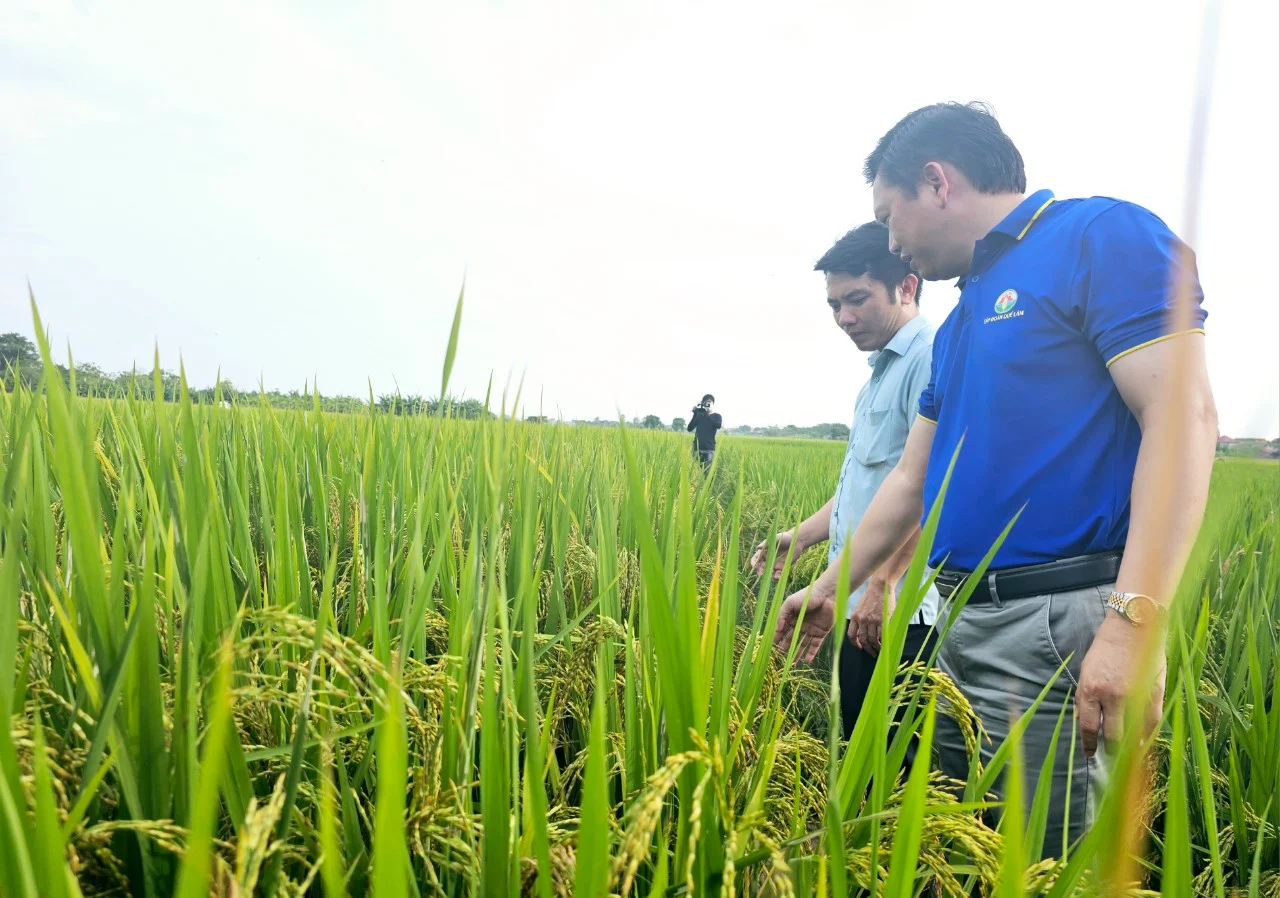
Leaders of Que Lam Group and Vinh Phuc Provincial Agricultural Extension Center inspect the organic DT 39 rice production model in Tan Phong. Photo: Hoang Anh.
This 2023 crop season, when Que Lam Organic Agriculture Company Limited coordinates with Tan Phong Agricultural Service Cooperative to deploy the organic rice growing model, more than 140 households participated with an area of 15 hectares. What's special is that not only do they produce rice in the usual organic direction, but cooperative members have now applied microbiological technology to process waste by-products from farming and animal husbandry into fertilizer so that "rice production contributes to promoting green growth".
Taking us to visit Tan Phong fields about to harvest, Ms. Tran Thi Thanh and Ms. Nguyen Thi Ty - Pioneers who changed rice growing practices in Nam Ban village (Tan Phong commune) excitedly said: Participating in the organic rice production model, households are supported by the state budget for 50% of the cost of rice seeds. The cooperative also signed an association contract with Guilin Organic Agriculture Company Limited to provide seeds, organic fertilizer, biological plant protection products, herbs, and instructions on the technical process of composting from crop by-products, raising livestock and organically caring for rice plants.
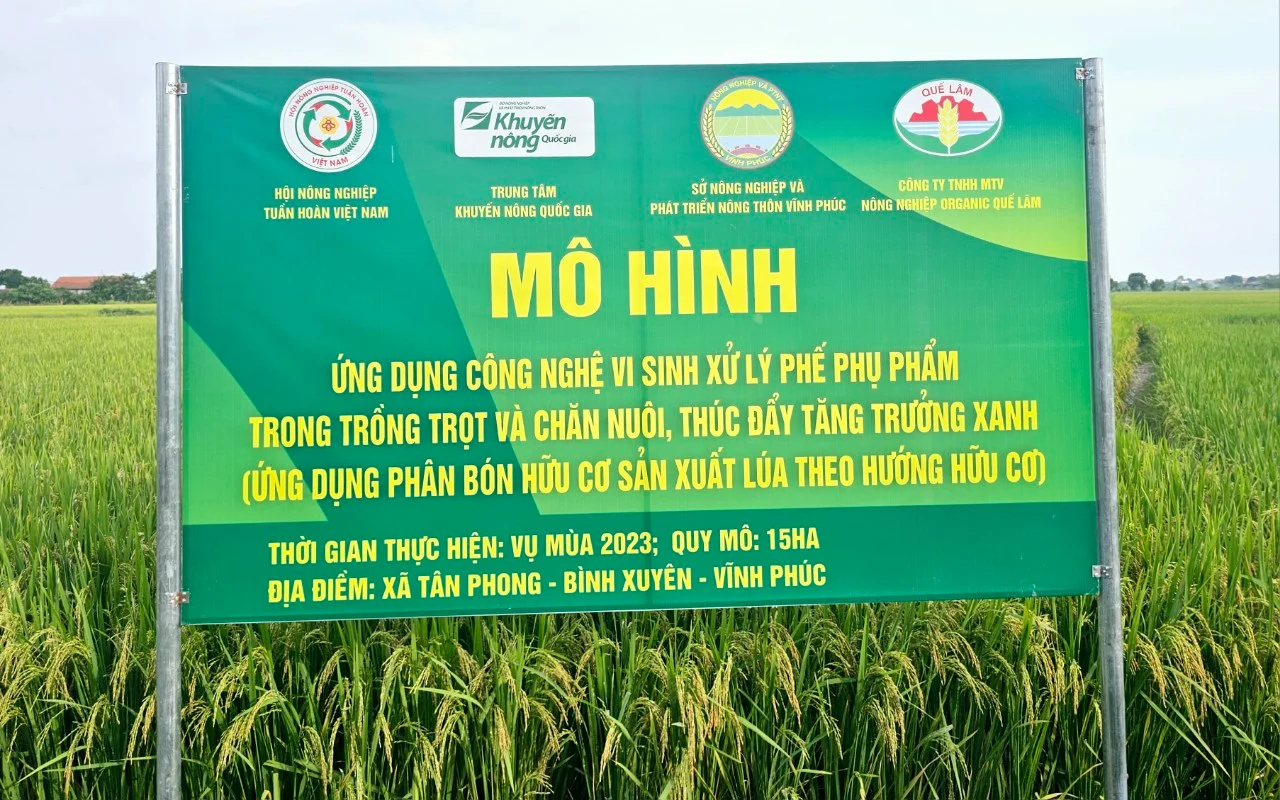
Tan Phong people apply microbial technology to implement a circular agriculture model. Photo: Hoang Anh.
During the farming process, Company staff also support farmers in the stages of land preparation, treating stubble with microbial products, composting microbial compost from by-products collected from farming and livestock farming... Things that used to be thrown away are now processed into fertilizer, creating a circular agricultural chain. In addition, households participating in the model do not have to worry about the market because both inputs and outputs are supplied and consumed.

Organically produced rice areas are very pest-free. Photo: Hoang Anh.
Regarding the economic value of the model, the Director of Tan Phong Agricultural Service Cooperative calculated that minus all costs, people earn about 1 quintal per acre of rice. With an average off-take price of VND 6,500/kg, people earn a profit of VND 650,000 per acre.
By planting the DT39 rice variety synchronously, with the same seasons and farming procedures, farmers can minimize the cost of hiring labor and machinery. In addition, in the process of linking with Que Lam Group, people are instructed to make microbial fertilizers and herbal plant protection products. This helps people take advantage of fertilizer sources from livestock, saving additional input costs, and realizing a circular economy model at the household scale.
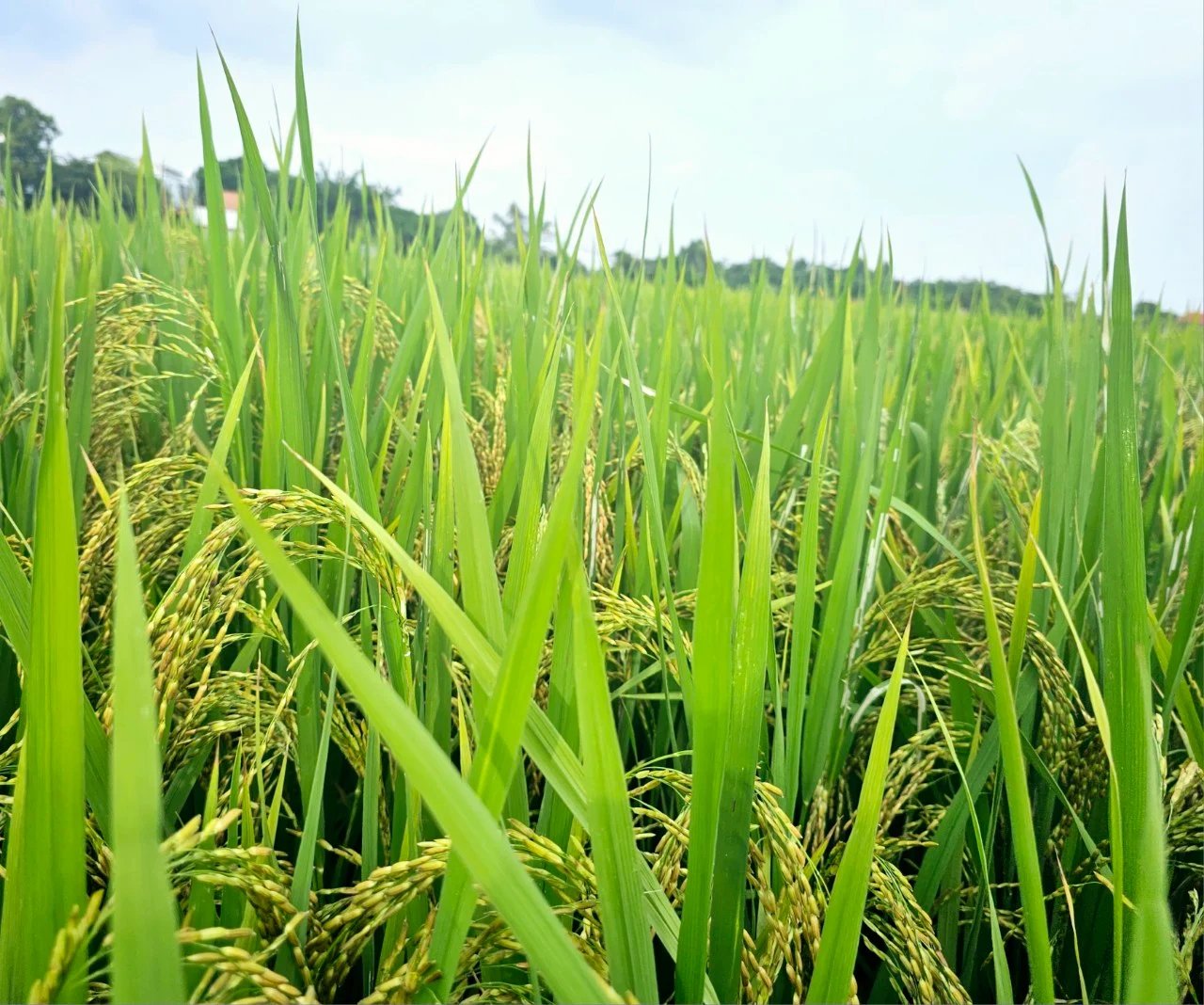
Not only are the rice plants healthy and disease-free, but the field environment in organic rice production areas is also very fresh. Photo: Hoang Anh.
During the implementation of the model, farmers use microbial organic fertilizer produced from biological bedding in raising pigs, chickens, and agricultural by-products to make fertilizer, so you only have to spend VND 500,000/acre. It is 90,000 VND/arce lower than organic rice production models deployed in the province.
Translated by Hoang Duy
/2025/11/27/3830-1-152901_403.jpg)
(VAN) Dong Nai is developing its key crop areas, expanding planting area codes, and applying high technology to increase the value of agricultural products, aiming at a green and sustainable agriculture.

(VAN) Tay Ninh’s livestock sector is undergoing a major transformation, applying high-tech, closed-loop circular models to build sustainable value chains.
/2025/11/26/3627-4-082628_818.jpg)
(VAN) From a small café on the red basalt highlands, Le Van Hoang started a business with clean coffee, building Enjoi Coffee into a symbol of organic agriculture in the Lam Dong plateau.
/2025/11/25/0045-1-135246_13.jpg)
(VAN) Ca Mau is researching a model of sea-encroaching embankments combined with viaducts and logistics service zones, aiming both to prevent erosion and create land funds for marine economic development.

(VAN) The information was shared at the seminar 'Urban Agriculture - Solutions for Developing Green Spaces,' organized by the Kinh te & Do thi Newspaper and the Biotechnology Center of Ho Chi Minh City.
/2025/11/19/4141-2-132831_216.jpg)
(VAN) One of Japfa's outstanding solutions is implementing digital transformation and artificial intelligence (AI) to optimize operations, enhance productivity, and advance sustainable development.
/2025/11/19/4847-1-093540_448.jpg)
(VAN) The Gia Lai Provincial People’s Committee had a working session with the delegation of the U.S. Department of Agriculture, the State of Idaho, and representatives of the State's leading enterprises.